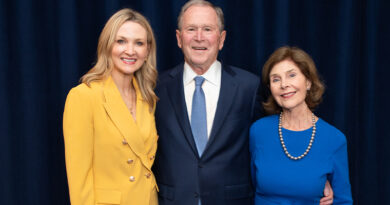MDs Give Clients Royal Treatment

Concierge Services Cater to Patients
When Dr. James Pinckney was a surgeon at Cedars-Sinai Medical Center in Los Angeles, one of his celebrity patients asked him to call their doctor close to midnight.
A little hesitant, Pinckney called. After no fuss from the doctor, he wondered why just the elite had access to their doctor at all hours of the day.
That’s when the idea sparked.
In 2012, Pinckney founded Diamond Luxury Healthcare in Preston Center, part of a growing trend of concierge-style medical services.
With memberships starting at $95 per month for adults and $45 per month for children, clients have 24-hour access to their physician with little to no wait. That’s including their cell-phone number and email address.
“I think it’s the best-kept secret in Dallas,” Pinckney said.
But Pinckney and his partner Dr. Anthony Lyssy, vice president of operations at Diamond Luxury, said being on-call is better than other physician jobs.
“My family is much more willing to give me up for a quick hour in the evening time than for me to be at work until 10 p.m. charting every night,” Lyssy said.
Pinckney said the average physician spends about eight minutes with their patient. Diamond Luxury spends an average of 60 minutes.
The average physician has about 4,000 to 5,000 patients, while Diamond Luxury’s physicians have a maximum of 500 patients.
“We know all of our clients’ names, their families, their kids’ names, what they enjoy,” he said. “With doing that, it allows better premium care because we tailor their needs around their lifestyle.”
And Diamond Luxury’s office isn’t exactly typical either.
Using windows to light the beige-colored physician rooms with décor hanging on the wall, Diamond Luxury tries to offer a more soothing feeling for its patients. It has two physician rooms, as well as an operating room for small procedures.
Pinckney gave an example of one of his patients being cut by a wine glass. The patient texted him a picture, met him at the office, got stitched up, and was home within the hour. If he would have gone to the emergency room, it could have taken much longer.
For Sharon Quick, the idea to create Park Cities Healthcare came after working with a patient with dementia.
Six years later, the concierge medical service has two registered nurses, including Quick — along with 22 patients and more than 40 caregivers.
The caregivers stay at a patient’s home in 12-hour shifts, constantly updating the RN with text messages, phone calls, and pictures.
But Quick explained she is more than just a nurse.
She said she buys groceries for her patients, fixes sprinklers, and does whatever they need.
“We handle everything,” she said. “Our caregivers are doing the cooking and cleaning and caregiving. Sometimes they’ll do the grocery shopping. Once a month, just to save my patients money, I’ll do a big-box Sam’s Club run and buy massive amounts of things and put it on the bill.”
Quick and Pinckney agreed concierge medical services are a growing trend.
“This is 100 percent the future of health care,” Pinckney said. “There’s no question about it.”
This story appears in the August issue of Park Cities People, on stands now.








